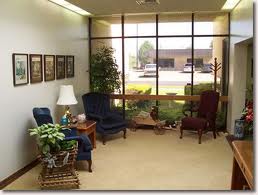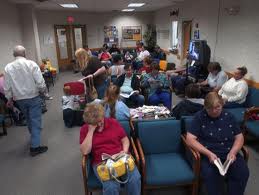 Concierge or boutique medicine is growing as busy people of means look for a way to bypass the red tape, waiting times, and inconveniences that may accompany a visit to the doctor. On the physicians' side, doctors, including primary care physicians have joined concierge groups to avoid the long hours, incessant forms and high overhead of an overworked, understaffed practice.
Concierge or boutique medicine is growing as busy people of means look for a way to bypass the red tape, waiting times, and inconveniences that may accompany a visit to the doctor. On the physicians' side, doctors, including primary care physicians have joined concierge groups to avoid the long hours, incessant forms and high overhead of an overworked, understaffed practice.
Basically, concierge medicine is generally a small practice of physicians who limit the number of patients they see for an additional fee or "membership" that the client pays. In return for this fee (usually $1000-2000 per year over actual treatment fees), the patient gets return phone calls and same day appointments, in most cases. The doctors get to see fewer patients but are able to provide more customized care and be able to navigate their patients more efficiently to any needed hospital care or specialists.
So what about the good, the bad and the ugly?
The good (on the patient side) includes more personalized care and as a result, more timely preventive care, when most diseases are caught early and interventions can prevent more serious problems. Most people work hard because it enables them to lead a better life. People work to send their kids to better schools, take more vacations, and have a better house. Why shouldn't an executive be able to see a doctor at his or her convenience! This is the American dream, right? We all want the best for our loved ones.
The good (on the doctor's side) includes a less stressful workplace, more time to really spend with a patient, and more time to have a personal life. They may see this as a better way to get to know their patients and provide better care, without the time limits of an overbooked waiting room. Because there are less patients, the paper work including insurance forms get processed quickly---no insurance delays here!
For the individual patient and doctor, it looks like a pretty good deal. But what impact will this have on the middle and lower economic classes that can't afford these 'boutiques' let alone health insurance. This is where the bad and the ugly come in.
 As more primary care providers join concierge practices, less physicians are available to provide general medicine to the masses. This causes a larger workload for the physicians who are left in the mainstream. This could lead to lower quality care because visits will be shortened and patients will be referred to see more physician extenders like physician assistants, nurse practitioners, etc. Not that there is anything wrong with these compassionate and dedicated caregivers who can handle the majority of stomach aches and ear infections (and sometimes are preferred to a busy doctor). But what about the prediabetic, the child with funny looking blood cells. Sure, the PA or NP can refer any unusual symptoms to the doctor on duty (if they can catch them between appointments!). But this only adds to the time needed to get a problem diagnosed and treated. The result could be less healthy patients who often miss the advantage of preventive care.
As more primary care providers join concierge practices, less physicians are available to provide general medicine to the masses. This causes a larger workload for the physicians who are left in the mainstream. This could lead to lower quality care because visits will be shortened and patients will be referred to see more physician extenders like physician assistants, nurse practitioners, etc. Not that there is anything wrong with these compassionate and dedicated caregivers who can handle the majority of stomach aches and ear infections (and sometimes are preferred to a busy doctor). But what about the prediabetic, the child with funny looking blood cells. Sure, the PA or NP can refer any unusual symptoms to the doctor on duty (if they can catch them between appointments!). But this only adds to the time needed to get a problem diagnosed and treated. The result could be less healthy patients who often miss the advantage of preventive care.
At the end of the day, this really becomes a social justice and ethical issue. We have a broken health care system that is forcing some to run away---if they have the money and opportunity. The others who don't have the resources simply deal with it. We need some kind of fair and equitable way to ensure that all people have access to basic health care that includes less costly preventive care. If we keep filtering off resources (e.g. primary physicians) to help those with money, there is little left to ensure the others have basic care. In the end, we all pay when we miss the opportunity to practice preventative medicine and a patient ends up in an expensive emergency room because their acid reflux wasn't treated and they now have a bleeding ulcer!

Comments